Session 1 - Collaboration for Success
Paul Giess from ARTC, gave an introduction to their role within the Inland Rail project and its scale, connecting three states and 36 Local Governement Areas (LGAs), where each part of the process is a major project in its own right and will work to shift to a 70% road and 30% rail/freight ratio. There are enormous employment opportunities and multiple contractual arrangements required to make this happen. Paul presented on how collaboration has always been the key in engagement activities and the development of reference design in Inland Rail and now this collaboration has extended to their approach to procurement and their relationship with contractors and industry more broadly. He spoke about early involvement through collaborative refocus procurement to provide the confidence for regional companies so that they can gear up for major projects and realise the benefits. Paul highlighted that collaboration with local government will also mean the infrastructure and economic benefits for communities will be for years to come beyond the project itself. He also pointed out opportunities in the region in terms of supply chain efficiencies and value chain growth and challenged us on what transport might look like in 200 yrs. What do you think?
David Bardos from the Port of Melbourne, which is an integral part of the Inland Rail infrastructure project, is one of the largest container and general cargo ports in Australia with a 22% trade growth last year alone in containerised freight that pairs with strong growth in regional agriculture production and unprecedented infrastructure investment. David highlighted the high global demand for goods, leading to container traders rapid and continual growth, which in turn is leading to demand outstripping supply. That pressure on the entire system means that collaboration is critical to maximising the value for regional economies. One answer is international trade networking groups to develop a better understanding of the paddock to plate process, that process not only happens between Regional Australia and the capital cities, but it is also international. David pointed out how important it is for us to see ourselves in that space. Regional communities have something to offer on a substantial scale.
Marnie Ogg from the Australian Dark Sky Alliance talked to us about a completely different and unique opportunity, the Warrumbungle Dark Sky Park, the first in Australia and with it the realisation of the potential for an asset of this kind and the need to preserve it. This is internationally remarkable; we have the darkest skies in the world and that creates enormous tourism potential - Astro-Tourism. It is a new term for many of us, it can be a once in a lifetime event for travellers and can also be a driver for regional economic activity. The UK and the US experiences show us that hundreds and thousands of tourists visit observatories and telescopes especially during phenomenon such as an eclipse. Excitingly, there is one coming that Dubbo may be well placed to observe. There are major opportunities from this to media, services, business, and entrepreneurs. But like the major infrastructure projects, it requires getting whole communities onboard and involved in the planning and the realisation about things like avoiding blue light and other factors, minimising how light goes into the sky so we can all experience and enjoy the wonder fo the night sky.
Ben Hughes from Hughes et al, spoke to us about working with major clients on local content and observing that strong internal networks create the strongest outcomes for all. From community and stakeholder management to media, indigenous participation and in the end these together greatly assists resourcing projects for the best outcomes. Ben talked about informed collaboration, not merely the idea of everybody getting together and having a talkfest but identifying what is the targeted outcome, what is the targeted process when we talk about bringing communities together to collaborate. Ben explained that it is a process that should include advocates from all sectors that connect with the project, where everyone is clear about the intentions and holds a shared responsibility framework. He said this requires data, strategy, shared understanding of the lessons from the past and what that means for future success, and Ben also suggested that we learn from corporate practices by centralising systems and efforts for functional collaboration with a shared goal and implementing holistic employment policies.
Session 2 - Industry & Innovation
Cindy Cassidy from the Southern NSW Drought Innovation Resilience and Adoption Hub looked at developing resilient, strong and diverse industrial bases for inland Australia and she presented about new systems being created in the region, for the region and for the people that require them. The Drought Resilience Hubs created around the country are intended to support the national agricultural innovation agenda as well as create resilience in those communities. She said that can be a matter of getting the right people in place to make a change and in the end, attract investment. The end game for Cindy’s region is a vision for sustainable and profitable outcomes for Southern NSW, well beyond our lifetimes and they have engaged four universities, two state departments, many farming systems, groups, rural aid and First Nations for governance. The Hub space will help in identifying the gaps and points of strength, funding research, and building resilience programs. This is so the region has a greater capability overall. Career paths in agriculture look much more secure in the future, if are not as strongly affected by natural disasters, then we can adapt successfully. The people are always the focus; engaging them, meeting their needs and focusing on values is a key drivers.
Murray Feddersen from Feddersen Consulting talked to us about risk in the bush, something we need to be prepared for and be conscious of but also not to underestimate the role of luck. His own business, now with a broad international focus, while based in Dubbo and in Narromine. That puzzles people and how he manages it. But it is Murrays decision to base his international business here and he stands by that even as demographics are changing in the bush as are our services. What about the perception that perhaps the people in the bush aren’t smart enough to do the job and suddenly there has been a reduction in the empowerment of decision-making taking place in our communities? Murray commented on the challenges that create winning jobs even when the business capacity is in fact highly skilled. But Murray reiterates, have a go and see what you know can lead you to opportunities. Don’t see yourself as limited by geography. His own business is a testament to that, working in places like the Democratic Republic of Congo because that creates diversity. Murray suggests keeping skills and education current, grasping opportunities, being focused on your customers and relationships and don’t burn them for short term benefit. We also have to make our case that inland Australia has the capacity, energy, potential and in turn, a strong future.
Dan Winson from Zetifi presented the importance of managing the digital divide between the city and the bush. He is particularly optimistic about what 5G opportunities will provide for tech-driven industry solutions across agriculture, mining and other regional and rural industries. This could mean that wireless equipment, but also expanded conversation and connection. Although it is important to note that in the middle of this excellent presentation Telstra’s data network went down in central Dubbo. In a sense, that exemplifies the challenges we have. We can talk, connect, and work with each other as never before if the supporting mechanisms work and if they are funded and sustained by the public and private sectors.
Session 3 - Workforce of the Future
Bronwyn Pearson from the Local Jobs Program talked to us about the work that is going on to manage and grow local jobs and to combat a very big problem for many of us, the extremely difficult skills and labour shortage that we are experiencing across inland Australia. She said the best solutions are place-based, they rely on a network of knowledge that cuts across local economies so again, that theme of collaboration across the community is the best way to draw our strengths and to build our relationships with local and regional. Priorities include infrastructure, indigenous job seekers, healthcare, social assistance, agriculture, and youth. Bronwyn also chaired the Workforce of the Future session.
Mandi Randell from the Central West Leadership Academy, delivered a very well-received presentation about the growing trend to develop your own solutions to workforce problems when it can be such a struggle to turn on the human resources tap. She said that schools are fundamental to augment the infrastructure including the nexus between businesses and schools. Where will the capacity for STEM begin, if not in our schools? Where do digital skills grow from, if not in our schools? If we miss these kids, if they go somewhere else, then we miss a major workforce opportunity for the future, when school partnerships in our community can yield very direct results. Partnering with schools supports the region as it attracts skilled workers, partners and families, retains existing workers, improves community reputation and a sense of interconnectedness and grows talent pipelines and diversity. We can manage the challenge of urban drift by providing competitive education here in the bush and that can also be the key to attracting skilled employees here as highly skilled staff will not risk their children's future if they think that the local educational opportunities are lacking.
Danielle Neville from Tafe NSW talked about establishing partnerships with businesses across Western NSW and educating around 35,000 students per year in this region, and putting training in place for real labour market needs which is key. This all comes on a journey. The connections are already in place, including whether a job is really the right job for students. TAFE NSW is pivotal in our local communities to provide training services to support towns and their employment growth. An example given was TAFE NSW’s partnership with AWCON which services mining, to develop two pre-employment programs, one for indigenous students, the other for young women, preparing them for employment in civil construction and mining. The program focused on civil courses in the mining industry which led to most participants being hired by different organisations. What tangible outcomes!
Jessica Brown from Marathon Health spoke about health and wellbeing and its impact on helping communities to thrive. If you do not have the workforce to make that happen, then there is no growth, no income, and no opportunity to take advantage of what is on offer. So supply, demand and distribution are critical. Theoretically, there is growth across the health sector in training, but their availability when and where they are needed is not such a simple equation and even more so when it is a specialised need. For example, Aboriginal and Torres Strait Islander care. The pandemic has not helped of course, and Jessica described the workforce issue as a wicked problem. She also expressed that every part of the sector is clamouring for the same in-demand workforce, with Royal Commissions and the global pandemic all exposing the poor outcomes that come from the chronic shortage of allied health professionals. She agreed that we have to grow our own and we have to develop long term relationships across the community and find homegrown solutions to this bind. Marathon Health are lateral thinking about what brings community needs and workforce solutions together.
Session 4 - Infrastructure for Development
Ken Gillespie from The Stable Group talked to us about huge anxiety around resources like water and energy and the need for transport access and the material things that regions need to build on to create success. Issues as simple as, is the water safe to drink and will the lights stay on? Yes, we are grappling with that in 2022 and in a first world nation like Australia. He identified some low progress in recent years, some quick wins, and cultural change, but also, frustratingly little progress in other areas. Ken also stated that the issue in local government is the one size fits all strategy or activity. Funding for the joint organisations that are yet to deliver a bigger economic vision, guaranteed roots to market and obvious benefits for large projects like Inland Rail were examples. But where are we really getting to with those ideas? And if Local Government relies on grant-funded infrastructure projects, where does that really end? When do we pay the piper in terms of genuine local economic outcomes? Do we start spinning our wheels if all we are doing is relying on grants from the government when we cannot solve the connection of workforce problems? Ken suggested that if we are to solve problems as dense as energy and water, we need an implementation plan that is funded, doable, collaborative and meets actual needs. Even when perhaps that need might not be politically popular, like supporting the diesel transition in a way that makes sense for the industry. A key way forward may well be delivery partner models just focused on getting those things done and perhaps Ken thinks it is time to shift paradigms and not to rely on the old models.
Tom O'Dea from nbn™ Local was confident that connectivity needs are being met and the pandemic certainly put a cracker underneath the organisation in terms of guaranteed access when people want and need to work from home. Most of us in inland Australia are still on fixed lines and we talked about the multi-technology mix that is on its way and that the network is quickly evolving along with substantial investment plans, including co-investment in regional Australia, greater access to business services, and a level playing field for wholesale access. nbn™ Local is focused on lifting the digital capacity at the local level to create shared economic and social benefits. Tom assures us that it is coming.
Dominic Letts from Fleetwood Australia also touched on one of the major issues in the problem we have in regional economies. Housing! Dominic spoke about how modular buildings can be thought of as a solution to the sometimes intense housing pressure. It is part of the struggle to find labour and resources to grow our economy when and if the right partners can be found. Fleetwood Australia has been in operation for over 55 years and covers a range of modular solutions including multi-residential, commercial, education, health and defence.
Tobin Gorey from Commonwealth Bank of Australia finished our last session and the day off with the kind of picture we are facing in terms of food production as a number of nations grow their economies and the supply and demand issues on high-quality food become both an opportunity and an enormous challenge for skilled Regional Australia. Currently, around 1 Billion people are classed as ‘high income’ globally and that is set to increase to between 2-4 Billion by 2040. This new reign of high-income earners will demand to eat the way we see those in rich countries do now. How will this be managed with the need for more, and better food?
___________________________________________________________________________
As our amazing Master of Ceremonies, Genevieve Jacobs said, collaboration is absolutely essential in Inland Australia. Silos are only useful for storing wheat, not for building communities and not for growing our regional economy.
Many speakers said, major projects work best and bring the greatest value if we engage all the stakeholders at a broad-based and genuine level so that people understand the value of the project and bring their skills and they actively participate in the outcomes both in the near and in the long-term. The risk otherwise, is that major projects and ideas can flounder if the communities do not understand what they are for and do not see how they can get involved or how they will benefit.
Resourcing is always going to be a problem.
Connectivity: How do we get people to communicate effectively?
Working towards a common goal; what the appropriate infrastructure is?
Where will the human resources come from?
How will we train, house, and educate the workforce for inland regional growth?
According to today’s speakers, the answers are in our own hands. There is no alternative resource tap to turn on, whether it is an external workforce or endless government funding. That will not work in the end. Perhaps the solution might be external through partnerships, perhaps it is through local community innovation, perhaps it is rethinking what our community expects and needs and how to meet it. But, it is clear in the bush we expect to be strongly connected to local needs and ideally supplied by local people with all their skills and expertise. That is a fundamental principle in doing business in inland Australia. Make it local, use the skills, use the capacity that we have already got, even if it is an international project. That can all be broadly summed up by the need to build resilience and innovation here in Inland Australia. We have what we need. Let us challenge the paradigms and use those resources to build our future together.








.png?width=75&name=handshake%20(4).png)
.png?width=71&name=analysis%20(1).png)

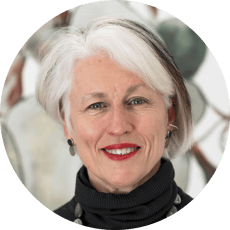
.png?width=230&name=Copy%20of%20IGS%20-%20Speaker%20(2).png)
-png.png?width=275&name=IGS%20-%20Speaker%20(8)-png.png)
-png.png?width=275&name=IGS%20-%20Speaker%20(9)-png.png)
.png?width=275&name=IGS%20-%20Speaker%20(10).png)
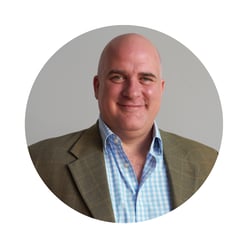
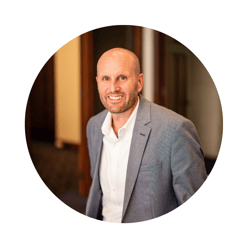
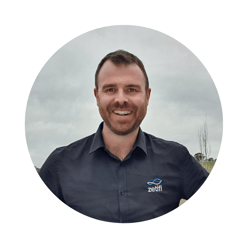
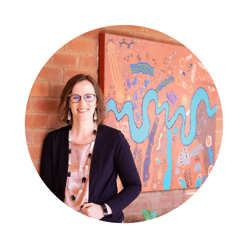
-png.png?width=248&name=IGS%20-%20Speaker%20(12)-png.png)
-png.png?width=248&name=IGS%20-%20Speaker%20(13)-png.png)
-png-1.png?width=248&name=IGS%20-%20Speaker%20(13)-png-1.png)
.png?width=248&name=IGS%20-%20Speaker%20(14).png)
-png.png?width=248&name=IGS%20-%20Speaker%20(16)-png.png)

-1.png?width=600&height=150&name=Newsletter%20150%20(1)-1.png)

.png?width=200&name=high_quality_business_logo-nbn_Masterbrand_Logo_CMYK-(002).png)
.png?width=200&name=Sponsor%20(2).png)
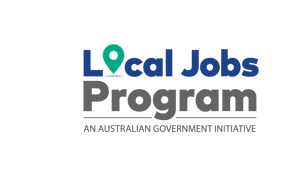
.png?width=300&name=223cc117-4644-4c0a-8881-9b789742d178-high_quality_business_logo-New-Transparent-RED-(REMPLAN).png)
